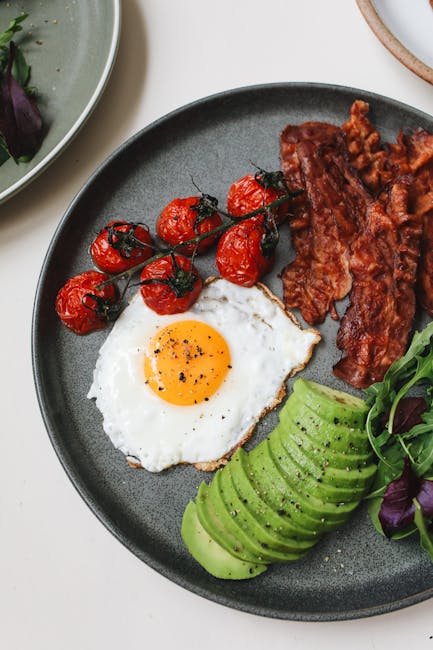How to Create a Weekly Low Carb Breakfast Meal Plan
Embarking on a low-carb diet journey can be both exciting and challenging. Breakfast, often touted as the most important meal of the day, sets the tone for your dietary success. Whether you’re a busy professional or a parent on the go, crafting a weekly low-carb breakfast meal plan can simplify your mornings and keep your nutritional goals on track. ?
Table of Contents
1. Why Go Low Carb?
2. Getting Started with Your Meal Plan
3. Essential Ingredients for a Low Carb Breakfast
4. Sample Weekly Low Carb Breakfast Meal Plan
5. Tips for Meal Planning Success
6. Conclusion
7. FAQs
Why Go Low Carb?
Low-carb diets are popular for a reason. They are linked to benefits like weight loss, improved blood sugar control, and increased energy levels. By reducing carbohydrate intake, your body turns to fat for fuel, helping you shed those extra pounds. Plus, low-carb breakfasts are often high in protein and healthy fats, keeping you full and satisfied until lunch. ?
Getting Started with Your Meal Plan
Creating a successful meal plan starts with defining your goals and understanding your dietary needs. Here are some steps to help you get started:
Identify Your Goals: Are you aiming to lose weight, manage diabetes, or simply eat healthier? Clarifying your goals will guide your meal planning process.
Calculate Your Carb Intake: Determine your daily carbohydrate limit. While this may vary, a common target for low-carb diets is 20-50 grams of net carbs per day.
Plan Your Week: Dedicate time each week to plan your meals. This will help you stay organized and make healthier choices.
Essential Ingredients for a Low Carb Breakfast
To create delicious and satisfying low-carb breakfasts, stock your kitchen with these essential ingredients:
Eggs: Versatile and packed with protein, eggs are a staple in many low-carb diets.
Avocados: Rich in healthy fats and fiber, avocados add creaminess and flavor to your meals.
Leafy Greens: Spinach, kale, and other greens are low in carbs and high in nutrients.
Nuts and Seeds: Almonds, chia seeds, and flaxseeds provide a crunchy texture and are excellent sources of healthy fats.
Greek Yogurt: Opt for full-fat, unsweetened versions to keep your carb count low while enjoying a creamy texture.
Sample Weekly Low Carb Breakfast Meal Plan
Here’s a sample meal plan to inspire your weekly low-carb breakfasts:
Monday: Scrambled eggs with spinach and feta cheese ?
Tuesday: Avocado and smoked salmon on a cloud bread
Wednesday: Chia pudding with almond milk and berries
Thursday: Omelette with mushrooms, cheese, and arugula
Friday: Greek yogurt parfait with nuts and a sprinkle of cinnamon
Saturday: Breakfast burrito with egg, cheese, and a low-carb tortilla
Sunday: Almond flour pancakes with a side of bacon ?
Tips for Meal Planning Success
To ensure your low-carb breakfast meal plan is a success, consider these tips:
Prep Ahead: Prepare ingredients in advance to save time during busy mornings.
Stay Flexible: Allow room for changes if a particular meal doesn’t appeal to you on a given day. Flexibility can keep you motivated.
Experiment with Recipes: Keep your meals exciting by trying new recipes and ingredients.
Track Your Progress: Use a journal or app to track your meals and monitor your progress towards your goals.
Conclusion
Creating a weekly low-carb breakfast meal plan doesn’t have to be daunting. With a bit of planning and creativity, you can enjoy a variety of delicious and nutritious breakfasts that support your health goals. Remember, the key is to find meals that you love and that fit into your lifestyle. Happy meal planning! ?
FAQs
Q: Can I have fruits on a low-carb breakfast meal plan?
A: Yes, but choose low-carb fruits like berries in moderation to keep your carb count in check.
Q: Is coffee allowed on a low-carb diet?
A: Absolutely! Coffee is low in carbs. Just be cautious with added sugars and creamers.
Q: What if I don’t have time to cook in the morning?
A: Consider prepping breakfast the night before or opting for quick options like Greek yogurt or smoothies.
Q: Can I eat bacon every day on a low-carb diet?
A: While bacon is low in carbs, it’s important to consume it in moderation due to its high saturated fat content.
